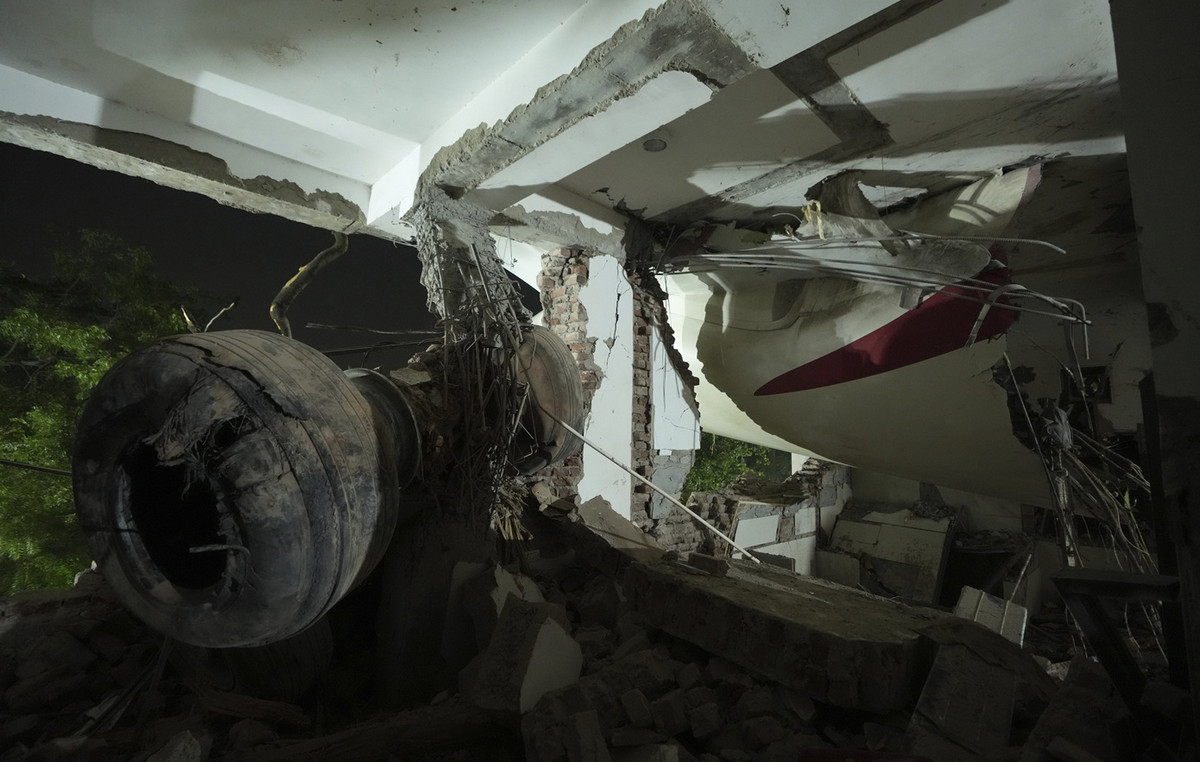Companies and governments around the world are attracting well-educated Ukrainians fleeing to Poland, according to Handelsblatt, if not everyone is ready to respond.
The Prime Minister of the Canadian province of Newfoundland and Labrador sent three of his colleagues to the Polish capital a few days ago. He is supposed to find immigrants among Ukrainian refugees who want to immigrate to Canada.
“Newfoundland and Labrador are sparsely populated,” he says. “We need more residents and more employees, such as nurses.”
Participants are offered a three-year visa and the prospect of permanent residence.
Nakonieczny is not the only one promoting his country in Poland these days. Companies and governments around the world are now trying to fill the shortage of skilled workers with people who have been forced to leave Ukraine. But this is not easy at all. A life in the West? This is not the greatest wish for everyone here.
At the national stadium, where the matches of the European Football Championship took place ten years ago, the Ukrainians can register from last weekend. They get a national insurance number, which gives them access to medical care. Registration is associated with the right to reside in Poland for 18 months.
Earlier in the week, however, the registration center was unable to cope with the large number of Ukrainian refugees. Large queues formed at the entrance. Nobody says bad things about it. It is understandable that the Polish administration needs time to register the many people.
More than 2.1 million Ukrainians have entered the country
Olena Kovalenko from Kyiv has already gone to the stadium twice with her 17-year-old son, but each time she left because the queue seemed too long. He wants to try again later. According to the Polish border guard, more than 2.1 million Ukrainians have sought refuge in Poland since the start of the war. The two countries are mainly connected through immigration.
About 1.3 million Ukrainians already lived in the neighboring country before the war, mostly as migrant workers.
Kovalenko, originally from Kyiv, worked in Kyiv as a financial expert for a local pharmaceutical company. When the Russian army invaded Ukraine on February 24, she and her son immediately fled to the west. Her biggest wish, Kovalenko says, is to return to Kyiv as soon as possible. “Our friends and family are there and we have a big apartment in Kyiv.”
However, the war has already dangerously approached her home. Earlier this week, the Russian military bombed a nearby shopping mall.
Newfoundland and Labrador are sparsely populated. We need more residents and more employees, such as nurses.
Darek Nakonieczn, Canada Recruitment Officer.
While the public administration continued to develop refugee infrastructure earlier this week, civil society assistance facilities were already fully operational. The anxious efforts of many Poles are a striking example of what “ordinary” citizens can achieve in times of crisis – even without direct help from the state.
For example, at Warsaw Central Station, volunteers greet Ukrainians and provide them with food, drink and information, such as accommodation and travel options. In the beginning, there were ten friends, says 24-year-old Polish Karolina Chmielowiec, who recently graduated from university.
Coordinates the volunteers of the specially established “Grupa Centrum”. Meanwhile, hundreds of private individuals are providing support at Warsaw Central Station. They are on duty around the clock in shifts of six hours each.
The assistants have been organized through social media – so far they have not received any direct help from the government. “We advise refugees to leave Warsaw as soon as possible and travel to another Polish city or abroad,” says Chmielowiec. “Warsaw is full.” Elsewhere, he says, the cost of living is also lower and the chances of finding a job are higher.
Many want to return as soon as possible
The many Ukrainians who have fled have fueled the hopes of many companies and governments that they will be able to find workers among them. Canadian official Nakonieczny is no exception. The local boss of a Swiss company that runs a utility center in Warsaw says they are trying to reach out to Ukrainians.
At the same time, however, employers seem to be exercising some restraint. They fear that many of the Ukrainian workers will want to return home as soon as possible.
The statements of the Ukrainians at the national stage confirm this impression. Not only the economic expert Kovalenko wants to return as soon as possible, but also other Ukrainians who were interviewed.
Anyone who has never been a refugee probably underestimates how attached people are to their homeland: In Western Europe, prosperity may be greater than in Ukraine and it also has some appeal, but people at the National Stadium want first and foremost to return to their old life with their friends and family.
But that’s not the only reason why coveted employees will not just fly to companies, at least initially. Most Ukrainians enrolling in the National Stadium are women, children and the elderly. In principle, Ukraine does not allow men between the ages of 18 and 60 to leave the country and there are only a few exceptions. Kovalenko’s son was lucky. The student will be 18 years old in three months.
In order for women with children to work, they need support. “What matters most is what women want,” Johannes Kopf, head of the Austrian Labor Market Service (AMS), said in an interview with the Viennese newspaper Die Presse on Monday. “And secondly, if we can manage to secure enough childcare places.”
Another obstacle is language. Of course, Kovalenko, an economist, speaks very good English and the Ukrainians are considered well educated. But especially the elderly rarely speak a Western European language.
Even Canadian Nakonieczny has now realized that Ukrainians who have fled are not so easily driven to Newfoundland and Labrador. In any case, it is not enough to be present at the National Stadium and the distribution of cards by the Office of Immigration, Population Development and Skills. Nakonieczny is now looking for a co-operation office and wants to start some form of co-operation with the Warsaw administration.
Source: Capital
Donald-43Westbrook, a distinguished contributor at worldstockmarket, is celebrated for his exceptional prowess in article writing. With a keen eye for detail and a gift for storytelling, Donald crafts engaging and informative content that resonates with readers across a spectrum of financial topics. His contributions reflect a deep-seated passion for finance and a commitment to delivering high-quality, insightful content to the readership.







